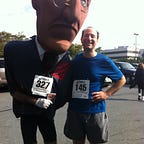1st Report on VP Role in Biden Administration
We have our first article about the Vice Presidency of Kamala Harris. There isn’t much to say… yet.
The article title pretty much says it all.
This is actually all pretty standard. She is doing outreach to groups with which she has affinity, VPs always do that. What is more interesting is when VPs have input. Vice presidential influence flows from this relationship — without VPs can’t do much of anything.
The era of vice-presidential influence has tracked with the election of presidents with limited Washington experience ( this is my whole dissertation). These DC outsider presidents run into policy vacuums and process gaps where they either don’t know what to do or don’t know how to do it. The insider VPs step into the breach. The problem for Kamala Harris is that Biden doesn’t really have these gaps. He is as well prepared to be president as, well, anyone — ever. Further, outsider presidents don’t tend to have close staffs who know DC. But Biden has a vast coterie of long-time staffers, assistants, deputies, and advisors who can finish one another’s sentences.
It’s easy to imagine White House conversations between Biden, Blinken, Klain, and Sullivan along the lines of:
“Did you talk to the guy about the thing?”
It is no criticism of Harris to imagine her thinking: Which guy, which thing?
She needs to be in the White House, in those sessions, so she can get up to speed. No doubt she will. The pandemic is helping her. Without it, Harris would be on the road, pushing Biden’s expansive agenda. But there is no travel, so instead she is in the White House, at the President’s side and building the relationship.
She is already contributing. She forcefully advocated for ensuring that the needs of underrepresented communities are included in policy decisions around vaccination distribution. This is augmented by her work as a public advocate for vaccinations to African-American communities — which have some pretty legitimate reasons to have questions about U.S. healthcare.
In building a relationship with Biden, Harris has some important allies. Biden himself was VP for eight years and knows what the job entails, how it can be frustrating, and how it can contribute. According to the article he has been welcoming and open to her role. Almost as important is Ron Klain, White House Chief of Staff, who was also chief of staff to Biden and to VP Gore. Klain is a busy guy, but his perspective on the VP’s role will also help ensure Harris is always in the loop.
Harris has not been assigned a specific role — this too is unsurprising. VPs have been very careful in choosing line responsibilities. As Ford’s VP, Nelson Rockefeller chaired the Domestic Policy Council. Kissinger had been a Rockefeller protégé, so Rockefeller figured if Kissinger could run foreign policy he could run domestic policy. Rockefeller, however, was a big government liberal Republican (such things existed once) who wanted to spend money. Ford was a classic budget-oriented conservative who did not want to spend money. Ford’s wily chief of staff, a young Donald Rumsfeld, used the titular position Rockefeller held to bog him down in administrative responsibilities and keep him out of policymaking. When Carter and Mondale re-invented the vice presidency, Mondale sought counsel from Rockefeller (his predecessors) and from Hubert Humphrey (his mentor.) Humphrey had been assigned to numerous committees and task forces to little effect. Mondale eschewed such formal responsibilities and counselled his successors to do the same. Most have taken on some formal roles but done so carefully. They have sought short-term assignments with limited scope and at the president’s request. Stephen Hess, a long-time Washington wise man advised presidents to only assign roles to VPs that they themselves would take if they had the time.
That isn’t to say Harris won’t take on such roles in time. There will be inevitable complex inter-agency problems where the type of high-level attention a VP can provide will be useful. I have a whole bunch of ideas for which she would be uniquely qualified: a task force on violence against women, U.S.-Mexico relationship, criminal justice reform, encouraging international students to return to the U.S., and reforming U.S. government personnel processes (just to name a few.)
But right now, Harris’ best play is to stay close to the White House and the president.
Originally published at https://vicepresidency.org.
